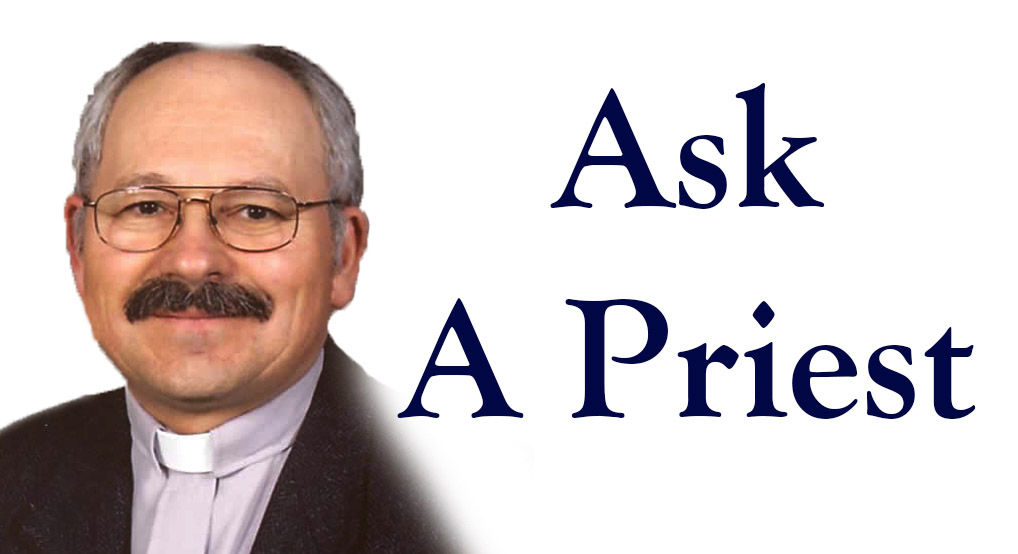Full question: What do I do if I am in a state of sin and cannot go to Confession? Is there a way I can get back into a state of grace and receive communion if I am unable to go to the Sacrament of Reconciliation?
Response From: Fr. Planchak
Response:
Thanks for a very good question. First, I would like to show you what church law (canon law) and our catechism (Christ Our Pascha) say about it.
Code of Canons of the Eastern Churches:
Canon 711 – A person who is conscious of serious sin is not to celebrate the Divine Liturgy nor receive the Divine Eucharist unless a serious reason is present and there is no opportunity of receiving the sacrament of penance; in this case the person should make an act of perfect condition, including the intention of confessing as soon as possible.
Canon 718 – In the sacrament of penance, the Christian faithful who committed sins after Baptism, internally led by the Holy Spirit, turn back to God, moved by the pain of sin, intent on entering a new life through the ministry of the priest, having themselves made a confession and accepted an appropriate penance, obtain forgiveness from God and at the same time are reconciled with the Church which they injured by sinning; by this sacrament they are brought to a greater fostering of the Christian life and are thus disposed for receiving the Divine Eucharist.
Catechism of the Ukrainian Catholic Church: Christ – Our Pascha:
Par. 445 – Holy Communion crowns the participation of the Christian in the Divine Liturgy. Our Lord said: “Unless you eat the flesh of the Son of Man and drink his blood, you have no life in you” (Jn 6:53). The Holy Fathers emphasized the need to receive Communion at the Liturgy: “Tell me, suppose anyone was invited to a feast and were to wash his hands, and sit down, and be already at the table, and after all refuse to partake; is he not insulting the man who invited him? Were it not better for such a one never to have come at all?” For the Christian, the fulfillment of the commandment “Observe the Lord’s day, to keep it holy” (see Ex 20:8 and Dt 5:12) means to take part in the Divine Liturgy on Sundays and holy days. The Church encourages Christians to receive Communion as frequently as possible for the sake of their spiritual growth. But the apostle Paul teaches: “Examine yourselves and only then eat of the bread and drink of the cup” (1 Cor 11:28). In preparation for Communion, the faithful examine their conscience and observe the Eucharistic fast.
Par. 446 – Christians partake of the Most Holy Eucharist “for the forgiveness of his or her sins and life everlasting.” “Let us … partake of the divine coal, in order that the fire of the longing that is in us, with the additional heat derived from the coal may utterly consume our sins and illumine our hearts, and that we may be inflamed and deified by the participation in the divine fire.” The condition for receiving Holy Communion worthily is a clean conscience, repentance for sins before God, and reconciliation with our neighbour: “[On] every Lord’s day gather yourselves together, and break bread, and give thanksgiving after having confessed your transgressions, that your sacrifice may be pure. But let no one that is at variance with his fellow come together with you, until they be reconciled, that your sacrifice may not be profaned.”
From this you can see that there can be instances of receiving the Divine Eucharist without receiving the Holy Mystery of Repentance if the conditions of Canon Law and the Catechism apply to your circumstances. However, I do not understand why there would be no possibility of Confession. I know all priests are very busy, but we always have time to hear the Confessions of the faithful. In many parishes, especially during the pandemic, a time should be arranged with the priest, which can be before or after Divine Liturgy. It is best to arrange a Confession with the priest during the week because this allows for sufficient time for a good Confession.
In some situations, if it is really impossible to reach a priest for Confession, one should sincerely repent of one’s sins and go to confession at the first opportunity. There is also the possibility of receiving Holy Communion in a spiritual way when the priest offers the prayer especially designated by the bishop for this purpose prior to distributing Holy Communion.
I hope it is a little clearer what to do if you find yourself in such a situation.
Father Mihajlo Planchak

